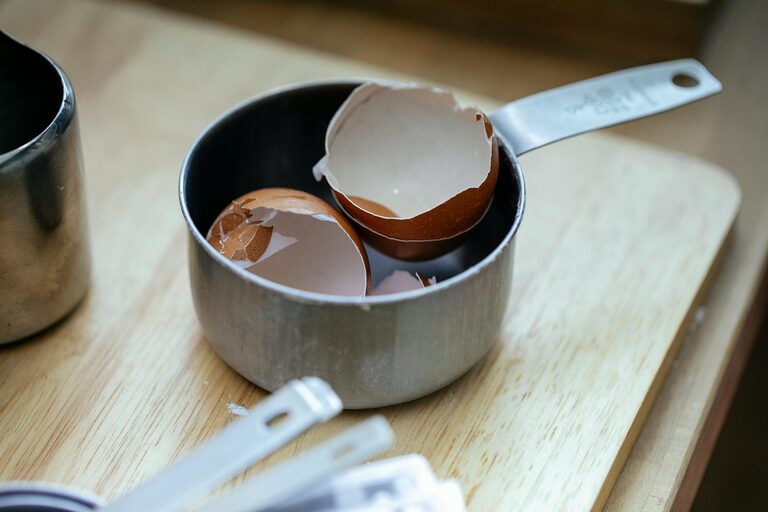Reducing food waste at home is a simple yet impactful way to contribute to the environment and cut down on household expenses. Every year, millions of tons of edible food are discarded, often due to improper planning or storage. By adopting a few mindful habits, you can make a big difference in how much food your household wastes. This post explores easy, actionable ways to reduce food waste in your daily life.
Why Reducing Food Waste Matters
Before diving into tips, it’s helpful to understand why food waste reduction is important. When food is thrown away, all the resources used to grow, process, and transport it are wasted too. This adds to greenhouse gas emissions and strains natural resources. On a personal level, wasted food means wasted money that could be spent elsewhere or saved.
Plan Your Meals and Shop Smart
One of the most effective ways to reduce food waste starts before you even step into the kitchen.
Make a Weekly Meal Plan
Planning your meals ahead helps you buy only what you need. Consider what dishes you want to prepare and the ingredients required. This avoids impulse buys and excess food that might spoil before use.
Create a Shopping List
Write down everything you’ll need based on your meal plan. Stick to this list when shopping to limit unnecessary purchases. Avoid shopping when hungry, as it can lead to buying more than intended.
Buy in Appropriate Quantities
Purchase fresh produce and perishables in quantities that match your household’s consumption. For smaller households, consider buying loose fruits and vegetables instead of pre-packed bags.
Store Food Properly
How you store food can significantly extend its freshness and usability.
Understand Storage Guidelines
Learn which foods do best in the fridge, freezer, or pantry. For example, most fruits and vegetables last longer in the fridge, while potatoes and onions prefer a cool, dark, dry area.
Use Airtight Containers
Transfer leftovers and opened packages into airtight containers or resealable bags to keep food fresher longer and prevent odors.
Label and Date Leftovers
Keeping track of when food was cooked or opened helps you use it before it spoils. Label containers with dates so you can prioritize eating older items first.
Practice Portion Control
Cooking and serving appropriate portions reduces the chances of uneaten food ending up in the trash.
Cook for Your Household Size
Avoid cooking large batches if you know you won’t finish them. You can batch cook and freeze reasonable portions for later meals.
Serve Smaller Portions Initially
Start with smaller amounts on your plate and take seconds if still hungry. This helps minimize uneaten leftovers.
Use Leftovers Creatively
Leftovers don’t have to be boring or wasteful.
Repurpose Ingredients
Transform leftover vegetables into soups or stir-fries. Use stale bread for croutons or breadcrumbs.
Create a Leftover Night
Designate one day a week to enjoy meals made entirely from leftovers and odds and ends in your fridge.
Compost What You Can’t Use
If food is no longer edible, consider composting it instead of sending it to landfill. Composting creates nutrient-rich soil for gardening.
Monitor Expiration Dates and Understand Labels
Food date labels can be confusing, and misunderstanding them often leads to premature disposal.
Know the Difference Between "Best By" and "Use By"
“Best By” indicates quality, not safety. Food is often still safe to consume after this date. “Use By” relates to safety and should be followed more strictly.
Conduct Sensory Checks
Smell, look, and taste food before discarding it (when safe to do so). Many items can still be enjoyed past their labeled dates.
Get Creative With Meal Prep
Plan creative meals around available ingredients to reduce waste.
Try Flexible Recipes
Use recipes that allow ingredient substitutions based on what you have. For example, vegetable frittatas or stir-fries can accommodate a range of veggies and leftovers.
Freeze Surplus Ingredients
If you have excess fresh herbs, fruits, or cooked food, freezing them preserves their value for later use.
Educate and Involve Your Household
Everyone in the home can contribute to reducing food waste.
Share Tips and Responsibilities
Discuss the importance of minimizing waste with family or housemates. Encourage sharing ideas and working together.
Teach Children About Food Value
Involving children helps instill lifelong habits. Teach them how to store food properly and understand portion sizes.
Benefits of Reducing Food Waste at Home
By integrating these strategies, you’ll notice several benefits:
– Save money by buying less and using all your food
– Reduce environmental impact by lowering waste and emissions
– Improve meal planning and cooking skills
– Enjoy more organized and efficient kitchen management
Reducing food waste doesn’t require drastic lifestyle changes. Small, consistent actions can add up to big improvements for your household and the planet. By planning well, storing food thoughtfully, and using leftovers wisely, you’ll make a positive impact every time you prepare a meal.
—
Thank you for reading! Have you tried any of these tips to reduce food waste at home? Share your experiences or suggestions in the comments below.

